Low sperm count, called oligospermia, is the most common cause of male infertility. Azoospermia, a complete lack of sperm is much less common, affecting less than one percent of the population. In either case, a semen evaluation can help determine if low sperm count may be a factor in male infertility and indicate an appropriate treatment.
Treatment for low sperm count will depend on what is causing the low number of sperm. Reasons for a low sperm count range from a structural problem, which prevents sperm from being ejaculated, to genetic or hormonal issues or injury. Many men have a treatable cause of male infertility and even those who are not treatable can take advantage of a variety of advanced reproductive techniques, such as in vitro fertilization, to father a child.
The Fertility Institute in New Orleans offers semen analysis and low sperm count treatment as well as advanced reproductive techniques to help a couple conceive. Founded in 1976, the institute is a leader in IVF and one of the first private fertility clinics in the United States.
A number of things can cause low sperm counts and treatment will depend on what is causing the low count, including:
- Varicoceles. This occurs when veins on the scrotum dilate. When blood can’t drain properly, it pools in the scrotum and can harm sperm production. This can be corrected by surgery.
- Structural Duct Problems. In some cases, the ducts that carry sperm may be missing or blocked, causing a low sperm count even though the testes produce sperm. Options include repairing or unblocking the ducts. If repair is not possible, sperm can be harvested and used in advanced reproductive techniques, such as intracytoplasmic sperm injection (ICSI). With ICSI, a single sperm can be retrieved and injected directly into a woman’s egg during an IVF procedure.
- Antibodies. At times, men develop antibodies to their own sperm, reducing their sperm count. Treatment for antibodies is controversial. For that reason, ICSI is a preferred option when antibodies reduce the number of sperm.
- Testicular Failure. In this case, the testicles cannot produce an adequate number of mature sperm. The reasons vary and can be caused by genetic abnormalities, hormonal factors, or varicoceles. Whatever the reason, even if there is a low sperm count, sperm can be harvested for use in ICSI.
- Hormonal Abnormalities. In a small percentage of cases, low sperm counts are the result of problems in the hypothalamus and pituitary glands, which regulate hormones used in the production of sperm. Treatment with human chorionic gonadotropin (hCG) or human follicle stimulating hormone (rhFSH) may overcome the problem.
- Drugs. Even some relatively common drugs can reduce sperm production or function. These include:
- Anti-fungal medications
- Drugs for inflammatory bowel disease
- Anti-hypertensives
- Gout medications
- Some antibiotics
- Hair loss medication
- Drugs for cancer, psoriasis, arthritis, ulcers, and reflux disorders.
- Infections. An infection in a man’s reproductive tract can affect sperm production. In some cases, it can cause irreversible infertility. In other cases, an infection can harm sperm production or function.
- Lifestyle Issues. Smoking, drinking, excessive exercise, obesity, and illegal drugs can all reduce the production of semen or the quality of semen. Treatment would require modifying the behavior that is causing conception problems.
Questions?
As you can see, there are many causes of low sperm count. If you need answers that are more specific to your situation, please contact us.



